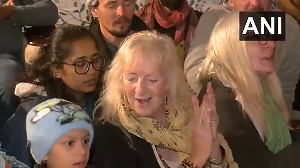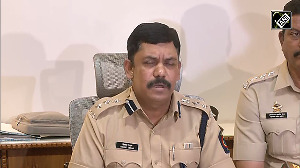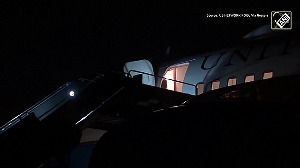Trade between Australia and India stands at around $15 billion a year, or just a tenth of that between Australia and China
 Australia and India will push for a free trade pact, Australian Prime Minister Tony Abbott and Indian Prime Minister Narendra Modi said on Tuesday during a rare state visit to Canberra by an Indian leader.
Australia and India will push for a free trade pact, Australian Prime Minister Tony Abbott and Indian Prime Minister Narendra Modi said on Tuesday during a rare state visit to Canberra by an Indian leader.
Australia on Monday finalised a landmark free trade deal with China more than ten years in the making, significantly expanding ties between the world's second-largest economy and one of Washington's closest allies in Asia.
Trade between Australia and India stands at around $15 billion a year, or just a tenth of that between Australia and China.
"We want to go further and that's why the next priority for Australia is a comprehensive economic partnership agreement with India," Abbott said.
"If I may say so, this is a moment in time. This is the time to get this done."
Modi, in an address to Australia's parliament, pledged greater cooperation on regional security, issuing a veiled swipe at China over disputes with its neighbours over islands in the South China Sea.
"Our region has seen huge progress on the foundation of peace and stability but we can not take this for granted," Modi said.
"Even when they have bitter disputes, we should maintain maritime security. We should work together on the seas and collaborate in international forums and we should work for universal respect for international law and global norms."
Modi on Monday addressed thousands of expatriate Indians at a packed 21,000-seat arena in Sydney that just last week hosted the Rolling Stones, underscoring the rock-star status he enjoys among some Indians at home and abroad.
Modi, who arrived on Friday for the G20 economic summit in Australia, where about 300,000 Indians live, urged Indians to boost investment at home.
Modi also said he wanted early closure on a deal for Australia to sell uranium to India, which was sealed in September, and also offered to increase supplies of conventional fuel to help India overcome chronic shortages.
Talks towards the Civil Nuclear Cooperation Agreement began about two years ago after Australia lifted a long-standing ban on selling uranium to energy-starved India.
Australia is emerging as a key source of thermal coal for India's growing number of electricity users, but Modi insisted he only wanted fuel that would not damage the environment.
Indian trade and infrastructure conglomerate Adani Enterprises has signed a pact for a loan of up to $1 billion from the State Bank of India for a $6 billion Australian coal mine, rail and port project.
Additional reporting by Jane Wardell in Sydney












 © 2025
© 2025